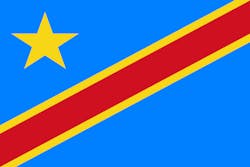Democratic Republic of the Congo declares meningitis outbreak
The Democratic Republic of the Congo (DRC) has declared an outbreak of meningitis in the northeastern Tshopo Province where 261 suspected cases and 129 deaths — a high case fatality ratio of 50% — have been reported, according to the World Health Organization (WHO).
Confirmatory tests carried out by the Institut Pasteur in Paris detected Neisseria meningitidis — one of the most frequent types of bacterial meningitis with the potential to cause large epidemics.
A crisis response committee has been set up in Banalia, the community affected by the outbreak, as well as in Kisangani, the capital of Tshopo, to accelerate the outbreak control efforts. The WHO said it has provided medical supplies in Banalia and plans to deploy more experts and resources.
More than 100 patients are already receiving treatment at home and in health centers in Banalia. Meningitis is transmitted among people through droplets of respiratory or throat secretions from infected people. Close and prolonged contact or living in close quarters with an infected person facilitates the spread of the disease. Although people of all ages can catch the disease, it mainly affects babies, children and young people.
More than 1.6 million people between 1-29 years of age were vaccinated in a massive campaign in 2016 in Tshopo, which lies in the African meningitis belt that runs across the continent from Senegal to Ethiopia and comprises 26 countries. The African meningitis belt is the most vulnerable globally to recurrent outbreaks.

